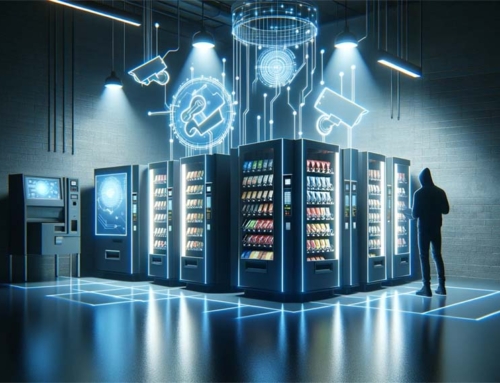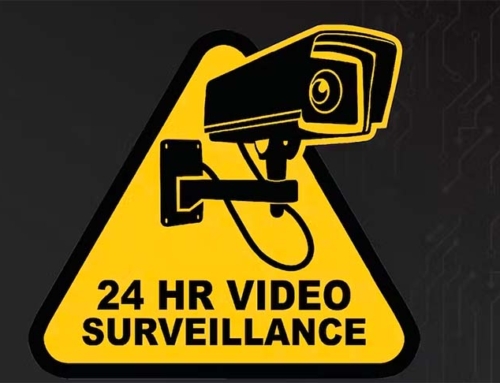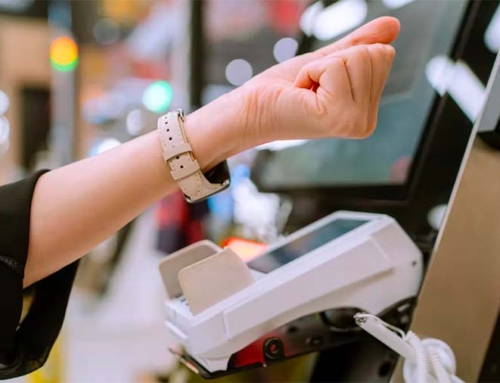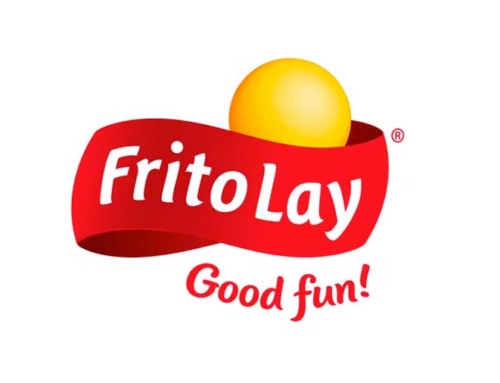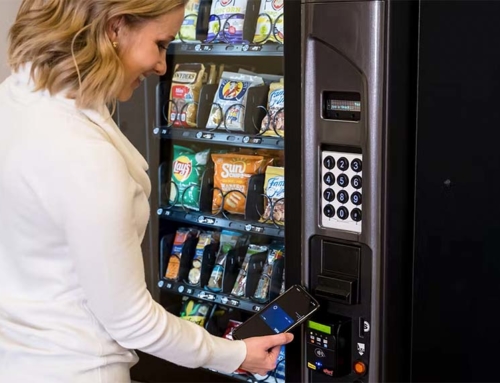Reprinted from Vending Times.
Everyone is waiting for the stay-at-home orders to be lifted so people can get back to work. Hopefully, the COVID-19 will be contained sooner than later.
But at the same time, many convenience services operators and suppliers are hoping that consumers will be more inclined to reduce face-to-face shopping encounters in the interest of preventing exposure to future pandemics.
In the short term, research indicates consumers are gravitating towards self-checkout solutions.
A recent consumer survey of U.S. grocery shoppers by Shekel Brainweigh, a provider of weighing technologies which provides autonomous micro market solutions, found that more than two-thirds of consumers are now using self-checkout or frictionless micro markets to pay for groceries compared to less than one-third of respondents who are ordering groceries online.
“Automated convenience services including vending can provide a great option for consumers focused on minimizing person-to-person contact,” Chuck Reed, NCE6, vice president and general manager for vending at Crane Payment Innovations, told Vending Times. “This is an opportunity for operators to highlight the benefits of an unattended purchase experience.”
“Due to this coronavirus outbreak, the consumer has now begun to educate themselves more and will be looking for methods of fulfilling their everyday shopping needs while mitigating the risk of infecting themselves in any way,” agreed Jeff Smith, chairman and CEO of All Star Services Inc., a convenience services operation in Port Huron, Michigan.
While observers agreed that consumers are more inclined to use unattended retail solutions, there was less consensus on what type of solution consumers will prefer.
A move to micro markets?
Smith thinks the coronavirus pandemic is accelerating a move to micro markets that consumers were already embracing on account of convenience.
“They (consumers) prefer to utilize this mode as sales in locations that have (previously) had traditional vending has gone up exponentially as a result of shifting to micro markets and self-service,” he said. “Overall, the consumer wants the freedom to shop and select the items they prefer without having to stand behind the glass.”
This doesn’t mean that operators don’t have to address consumer concerns about touchscreen sanitation, however. Many micro market kiosks have touchscreens.
“Consumer confidence in safety will be paramount as new and necessary changes will be arising to offer all that needed security,” Smith said. “I believe that the consumer is now much more aware of contamination. It will be a message that the operator will have to further educate the consumer regarding available safety measures taken, as well as to offer a means to the consumer to use when shopping.”
Gary Arwin, president of Gator Vending Inc. in Orlando, Florida, agreed that micro markets will gain favor, although for different reasons than Smith.
“I don’t think the coronavirus itself will accelerate the adoption of self-service convenience but I do believe as more and more businesses shut down temporarily that employers and employees alike who will have more time on their hands will be on the Internet and will find out more about micro markets in the workplace and will inquire about how they can add them to their businesses,” he said.
On the other hand…
Paresh Patel, a longtime convenience services operator who now operates PayRange, a payment technology provider for unattended retail, thinks consumers will be less inclined to handle products in an open container and may feel traditional vending machines are more sanitary than micro markets.
“We think there will be growing risk of food placed in open, unattended markets because there is no telling the number of people who have handled the packaging,” Patel said. “One benefit of micro markets is that a consumer can handle the product — pick it up, look at the labels, touch it to see if it is fresh, etc. But that very benefit introduces new risks that are not as present in vending.”
Mara Behrens, vice president of design and marketing at Chowbotics, which makes a robotic salad vending machine, offered a similar view.
“I don’t imagine anyone will be going back to a self-serve salad bar or buffet service anytime soon,” Behrens said. “There are entire sections of grocery stores, for example, that have been shut down and likely will remain so. We will also see the elimination of self-service condiments, utensils, etc. in fast casual and QSR dining. Self-service ordering and payment, however, especially contactless payment, will probably become the new normal, and this adoption will be greatly sped up by the coronavirus.”
Will touchscreens be trusted?
Most observers agreed that a preference for contactless payments will continue to drive mobile payments, but whether or not consumers will be less reluctant to use touchscreens is an open question.
“I would expect most consumers will want to limit their touchscreen usage to their own phones, but I don’t see touchscreens going away,” Reed of Crane Payment Innovations said. “I do expect the adoption of contactless payment to quickly accelerate.”
Jeff Whitacre, CEO of Food Express Inc., a convenience services provider in Greeensboro, North Carolina, and the president and CEO of GlobalConnect Inc., a consortium of convenience service companies that provides consumer loyalty and rewards program, manufacturer promotions, health and wellness initiatives and data analytics, agreed mobile payments will expand in convenience services.
“Mobile apps will explode as a result of this and our industry should encourage this and adopt them,” said Whitacre, “I still like a dedicated point-of-sale (device) for consumers to check out to minimize theft, but again there should never be any reason for the consumer to touch the kiosk.”
Whatever self-service venue consumers gravitate towards, operators will need to uphold stricter sanitation practices.
“We will come out of this with a better understanding of how our hygiene habits can affect others and our way of life,” said Whitacre. “Clearly communicated and standardized sanitation standards will be the norm.”
“There is no playbook to understand how consumers will be impacted in the long-term by this, but our belief is that consumers are in fact learning new behaviors and adapting to the situation in ways that will form some lasting changes,” said Patel of PayRange.
For an update on how the coronavirus pandemic is affecting convenience services, click here.


